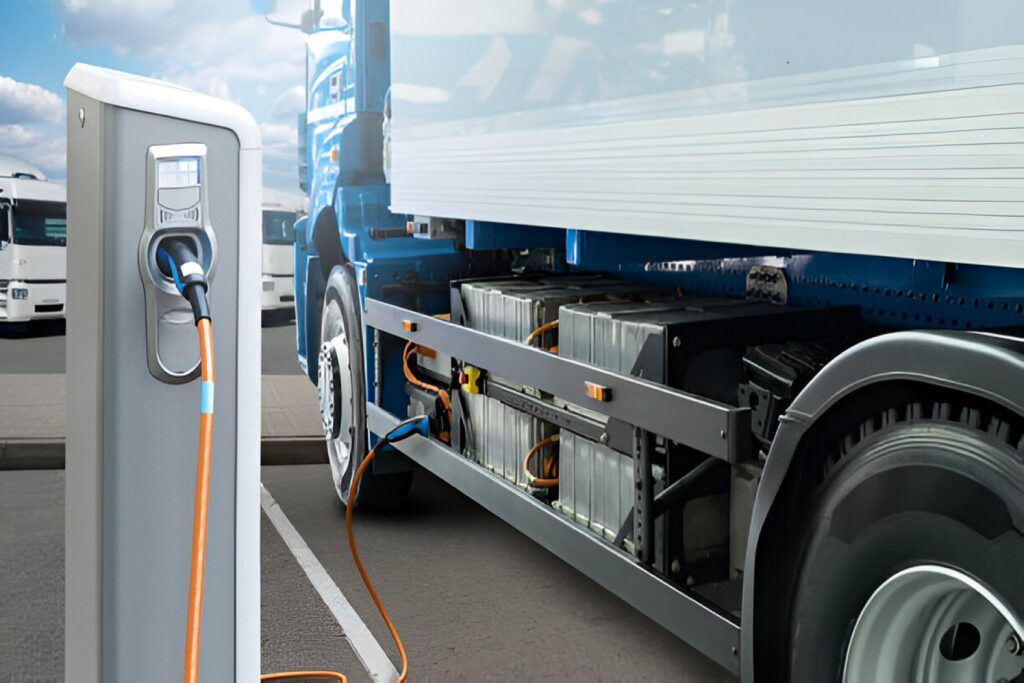Are Electric Auto Transport Trucks Feasible?

The transportation industry stands at a crossroads of transformation, driven by technological advancements and a growing commitment to sustainability. As the world struggles with climate change and environmental concerns, electric trucks have emerged as a promising solution to reduce carbon emissions.
While electric cars have gained a lot of attention and market traction over the years, diversifying into auto transport trucks is beginning to attract significant interest.
In this blog, US Car-Go Freight is going to talk about some of the pros and cons of electric auto transport trucks, and how that might impact the environment.
What Are Electric Auto Transport Trucks?
Electric auto transport trucks are new and developing trucking trucks that produce zero-emission during transportation. These trucks are designed to carry multiple vehicles simultaneously, serving as a critical component of the automotive supply chain.
Challenges Electric Truck Might Face
Technology
The feasibility of electric auto transport trucks is greatly dependent on the development of technology. Traditional auto transport trucks are large, heavy vehicles that require substantial power to operate efficiently. Electric trucks, therefore, face significant challenges in terms of battery technology, powertrain design, and overall energy management.
Battery Technology
One of the most significant challenges is the development of batteries that offer both high energy density and longevity. Auto transport trucks need batteries capable of supporting long hauls with substantial cargo loads. But achieving this with electric trucks remains a challenge.
Many companies are now investing in advanced battery technologies, including solid-state batteries, which promise higher energy densities and faster charging times compared to traditional lithium-ion batteries.
Charging Infrastructure
The availability and speed of charging infrastructure are key in determining the feasibility of electric auto transport trucks. Unlike vehicles, which can be charged overnight at home, commercial trucks often require quick turnaround times.
Economic Implications
Electric trucks generally come with a higher price tag, and operational expenses compared to traditional diesel trucks. According to research, the initial investment in electric trucks is typically higher than their diesel counterparts due to the cost of advanced battery technology and electric powertrains.
Environmental Benefits of Electric Auto Transport Trucks
Electric auto transport trucks will contribute significantly to greenhouse gas emissions, and transitioning to electric trucks can play a crucial role in reducing the carbon footprint of the sector.
Reduced Emissions
Electric trucks produce zero tailpipe emissions, contributing to improved air quality and reduced greenhouse gas emissions. This is important in urban areas and regions with stringent air quality standards. By transitioning to electric auto transport trucks, companies can significantly reduce their carbon footprint and contribute to broader environmental goals.
Sustainable Energy
The environmental impact of electric trucks depends on the source of the electricity used for charging. As the grid becomes increasingly powered by renewable energy sources such as wind, solar, and hydro, it improves the environment. Investing in renewable energy infrastructure alongside electric trucks can further enhance their positive environmental impact.
How Electric Auto Transport Truck Can be Feasible
Building Infrastructure
The successful use of electric auto transport trucks requires significant infrastructure development. This is because it requires charging facilities and support services. This infrastructure needs to be reliable, and strategically located to support the operational needs of these trucks.
Charging Stations
The network of charging stations must be expanded to accommodate the needs of electric auto transport trucks. High-power charging stations, capable of delivering rapid charges, are essential to minimize downtime and keep trucks on the road. Building these stations along major transportation routes will be crucial in ensuring that electric trucks can operate efficiently and without delays.
Maintenance and Support
The company must be equipped to handle the unique needs of electric trucks. This includes specialized training for technicians, as electric drivetrains and batteries require different servicing and diagnostic procedures when compared to traditional diesel engines. Also, supply chains for spare parts and components need to be established to ensure quick and efficient repairs.
Fuel Savings
One of the significant advantages of electric trucks is the reduction in fuel costs. Electricity is generally cheaper than diesel on a per-mile basis, and as the electricity grid becomes greener, the cost benefits will improve.
Additionally, electric trucks benefit from lower operational costs associated with fuel maintenance.
Incentives and Regulations
Governments are giving incentives to encourage the adoption of electric cars. These may include tax credits, rebates, and exemptions from certain fees or restrictions. Companies investing in electric auto transport trucks can benefit from these incentives, which can offset some of the initial costs and improve the economic feasibility of the transition.
Ship Your Car With US Car-Go Freight
Electric auto transport trucks hold promise as a sustainable solution to the environmental challenges facing the transportation industry. As technology continues to evolve and investments in infrastructure grow, the vision of a fleet of zero-emission auto transport trucks becomes increasingly attainable.
Need to ship your car across the United States? US Car-Go Freight is here to assist you with your car shipping process. Get started with us today!
Recent Posts.
- What is a Auto Transport Bill of Lading and Why It MattersWhat is a Auto Transport Bill of Lading and Why… Read more: What is a Auto Transport Bill of Lading and Why It Matters
- Auto Shipping Trends to Monitor in 2025Auto Shipping Trends to Monitor in 2025 Auto Shipping Trends… Read more: Auto Shipping Trends to Monitor in 2025
- How Dealerships Deliver Cars (And Why It Matters for You)How Dealerships Deliver Cars (And Why It Matters for You)… Read more: How Dealerships Deliver Cars (And Why It Matters for You)



